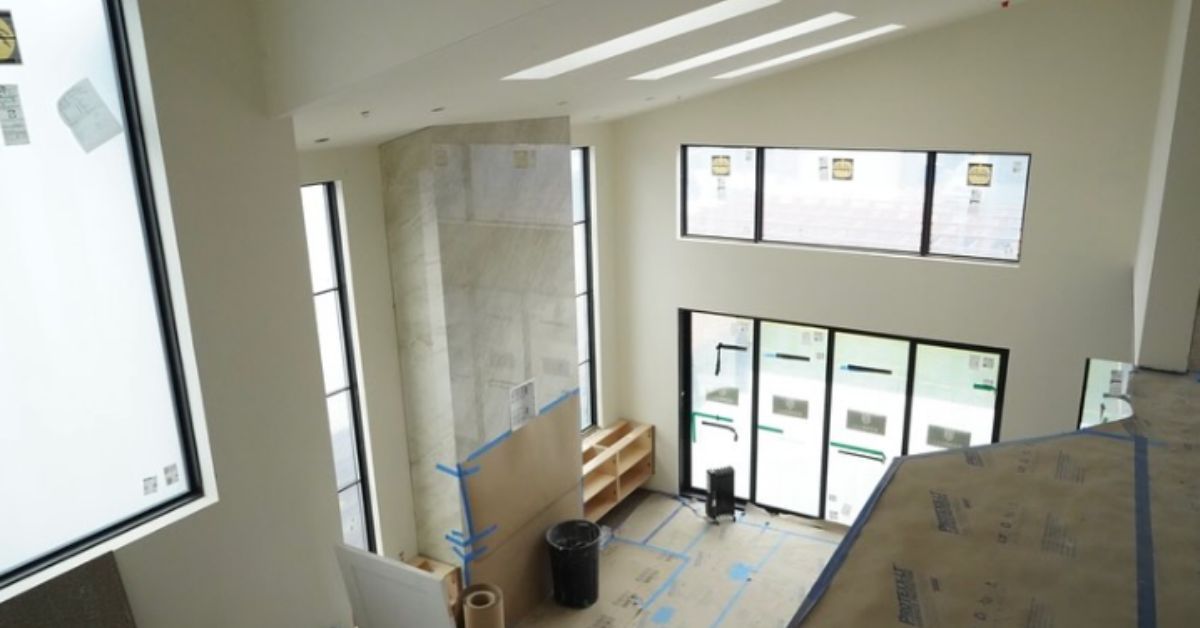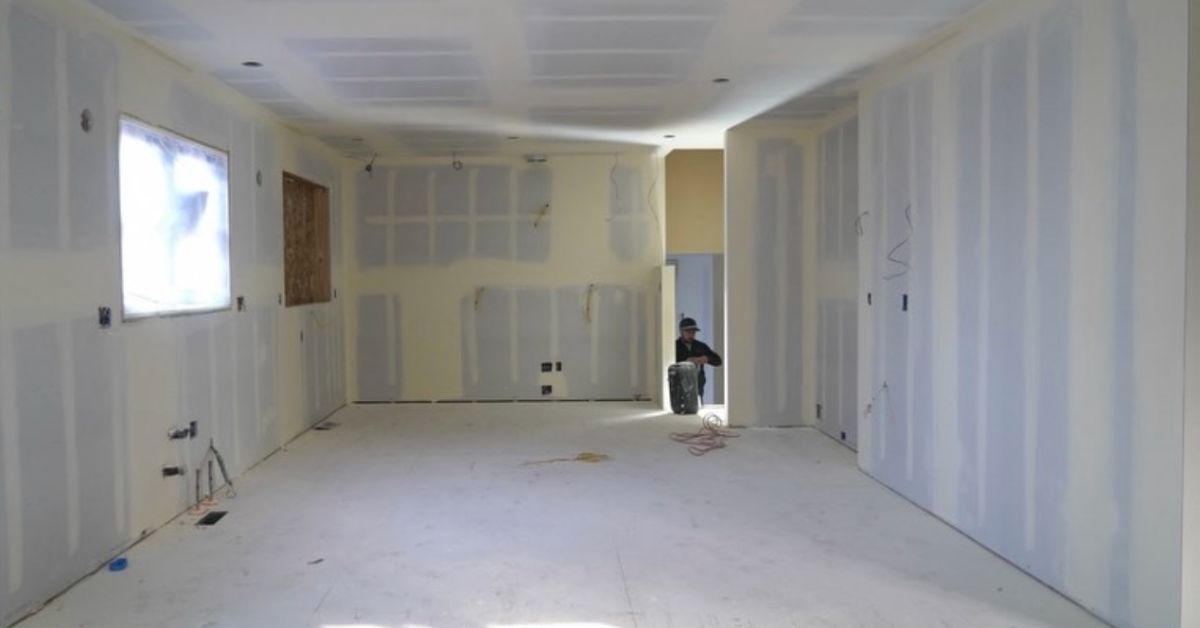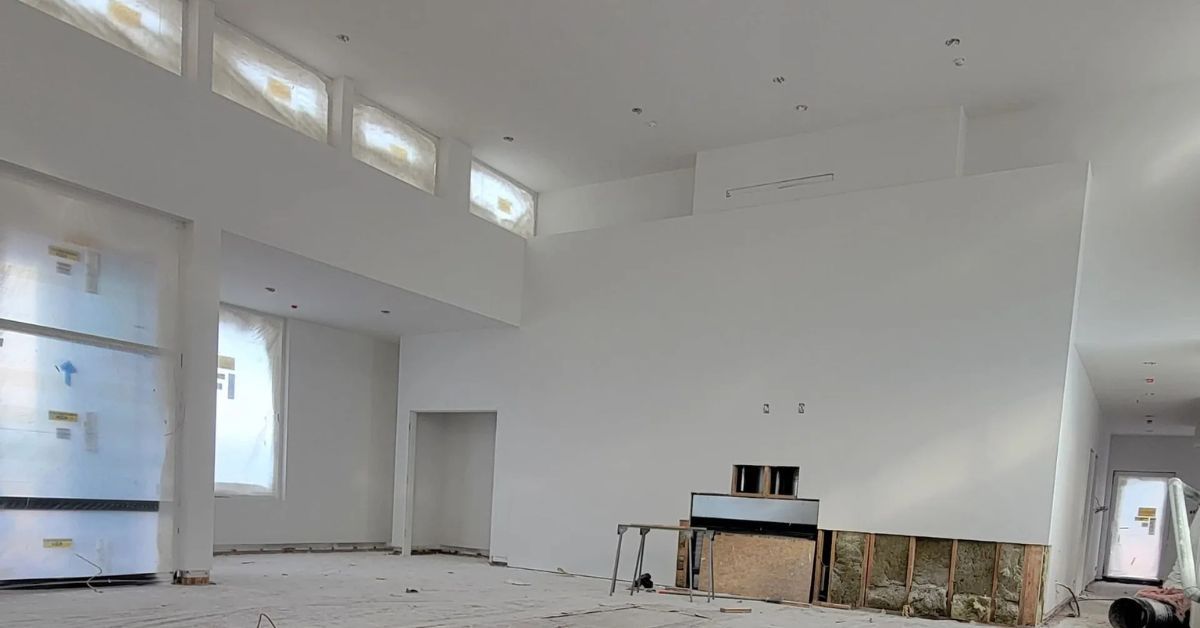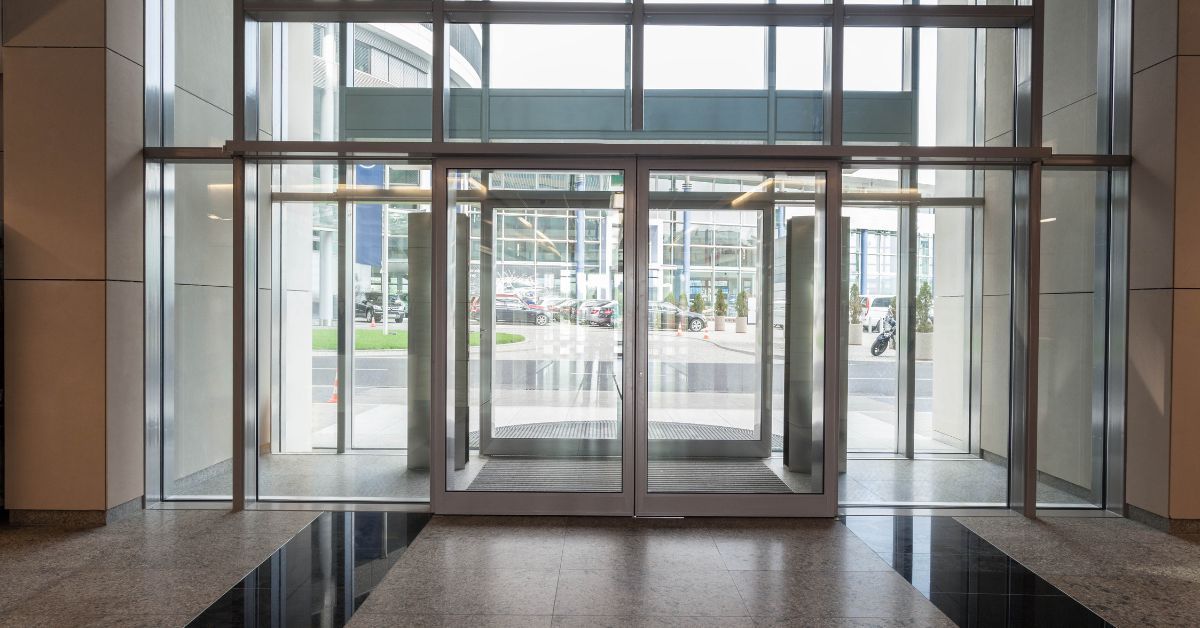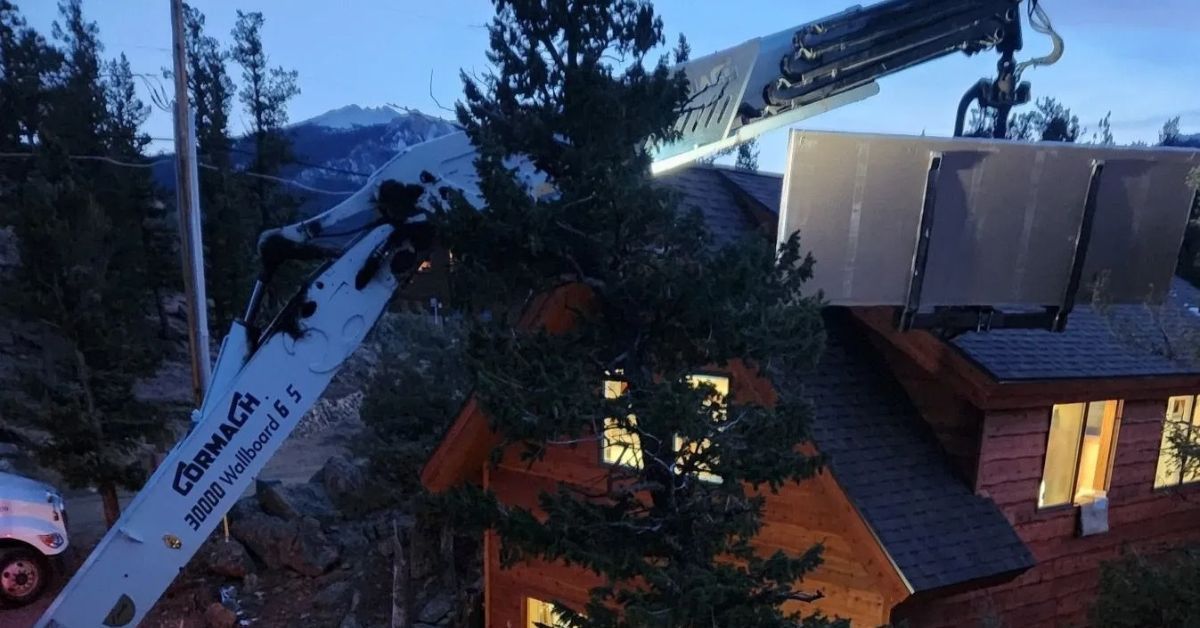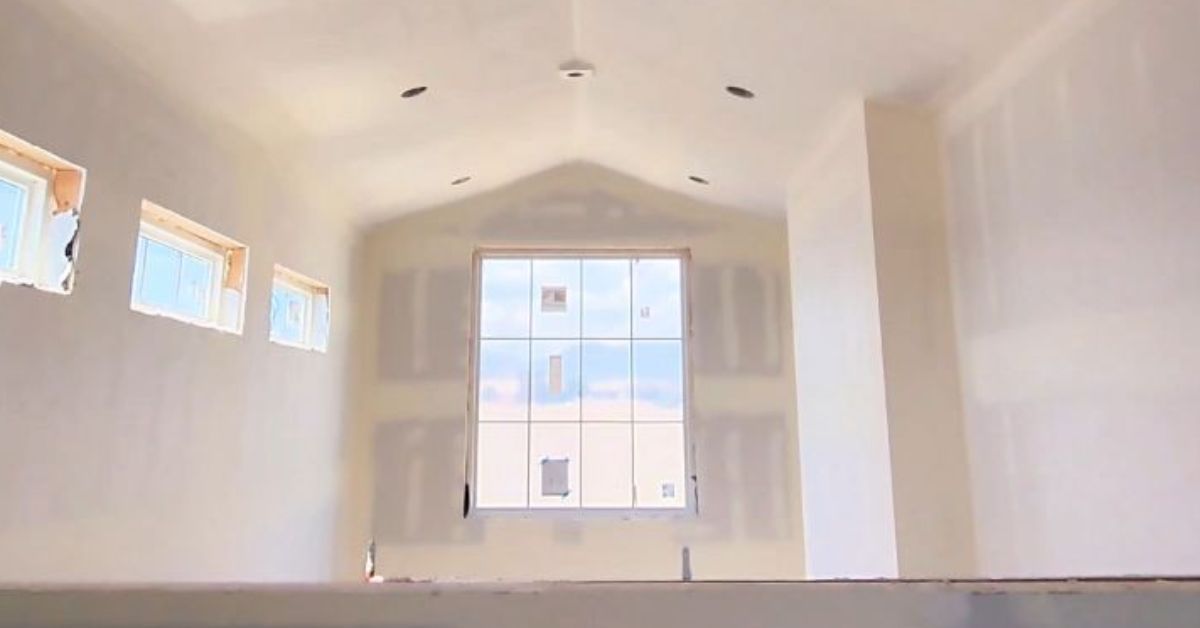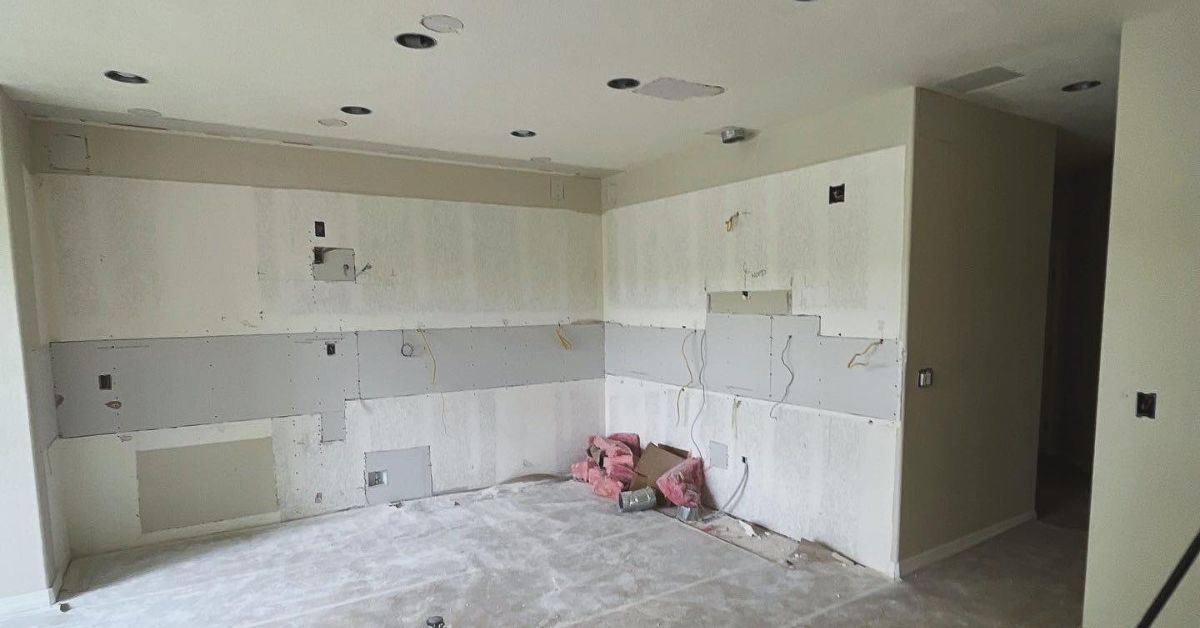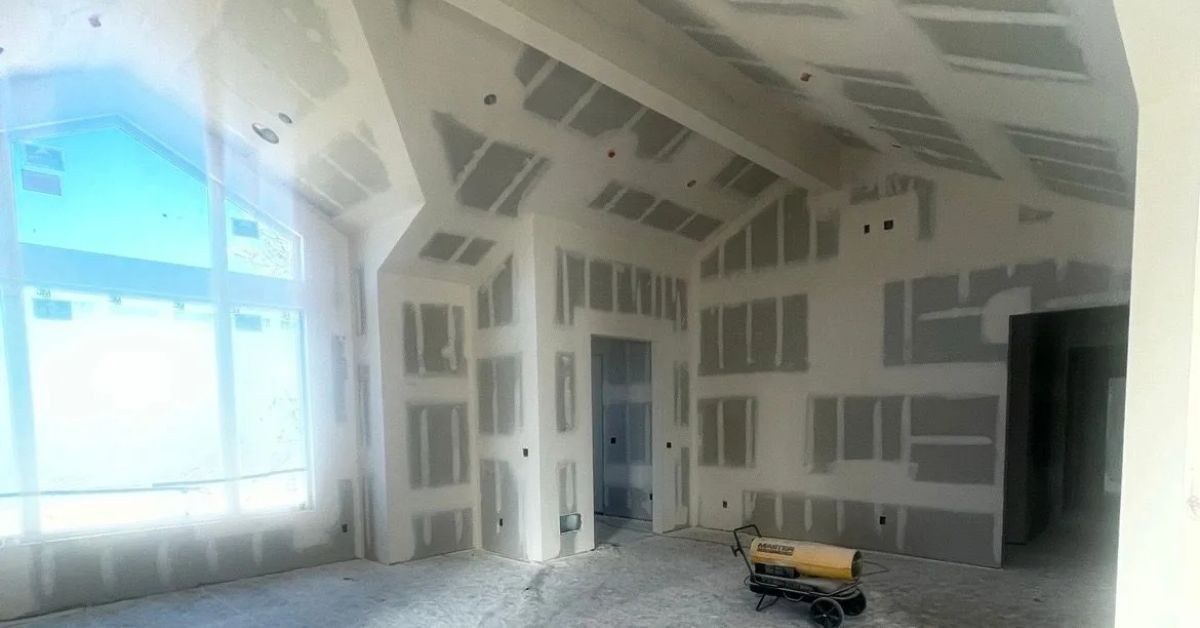The Importance of Timely Drywall Repairs
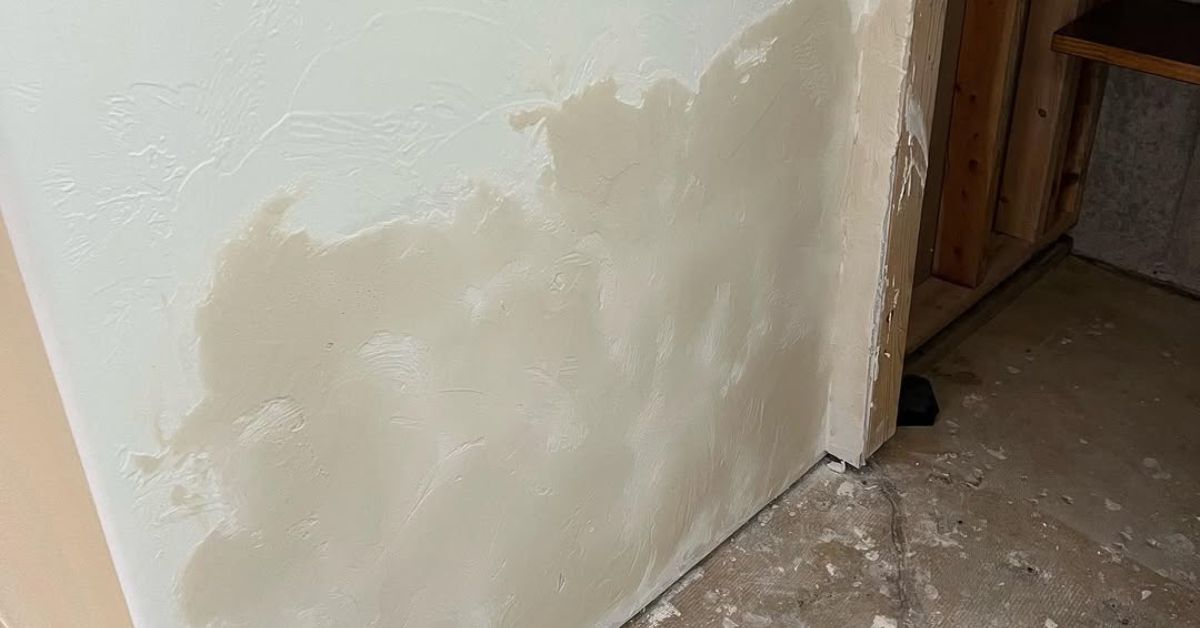
Prevent Property Deterioration
Water Damage
Small cracks or holes in drywall create pathways for moisture to penetrate deeper into the home’s structure. Once moisture gets behind the drywall, it can damage insulation, wooden framing, and electrical systems. Hidden moisture creates ideal conditions for mold growth, which can spread throughout your home’s ventilation system.
Structural Complications
Damaged drywall loses its ability to provide structural support to the walls. While drywall isn’t load-bearing, it does contribute to the overall stability and rigidity of wall systems.
Water damage weakens the structural components of your walls. Wooden studs can rot, and metal components can rust. What starts as a minor repair can escalate into major reconstruction work.
Furthermore, cracks in the drywall likely indicate underlying structural issues. They might seem like superficial imperfections, but the root cause of the cracks will continue to worsen without action. Foundation settling, frame shifting, and inadequate structural support can cause large gaps and extensive damage.
Pest Infestations
Small openings in drywall provide entry points for insects, rodents, and other pests. Mice can squeeze through openings as small as a dime, while various insects can access wall cavities through tiny cracks. Once inside, pests can cause damage and create unsanitary conditions.
Pest infestations often go unnoticed until they become serious problems. By the time you see signs of pest activity, these creatures may have already established nests or colonies within your walls, making removal more difficult and expensive.
Health Concerns
Damaged drywall creates opportunities for indoor air quality problems. Moisture intrusion through cracks or holes can lead to mold and mildew growth in wall cavities. The contaminants can trigger allergies, respiratory problems, and other health issues.
Dust and debris from deteriorating drywall can also circulate through the air. This is particularly problematic in old homes where drywall may contain materials that are no longer considered safe for indoor air quality. Some of these materials include asbestos in joint compounds, lead-based paint beneath the surface, or urea-formaldehyde foam insulation.
Preserve Energy Efficiency
Damaged drywall directly impacts your home’s energy performance. Cracks, holes, and gaps allow conditioned air to escape while letting outside air infiltrate the living space. Continuously leaking air forces heating and cooling systems to work harder to maintain desired temperatures.
Even small gaps can have a measurable impact on energy costs. According to the US Department of Energy, air leaks can waste between 10 and 20 percent of heating and cooling energy. When multiple drywall issues exist throughout a home, this percentage can rise.
Poor drywall condition also affects insulation performance. Damaged areas can compress or displace insulation, creating thermal bridges that allow heat transfer. This reduces the overall R-value of your wall system and increases energy consumption year-round.
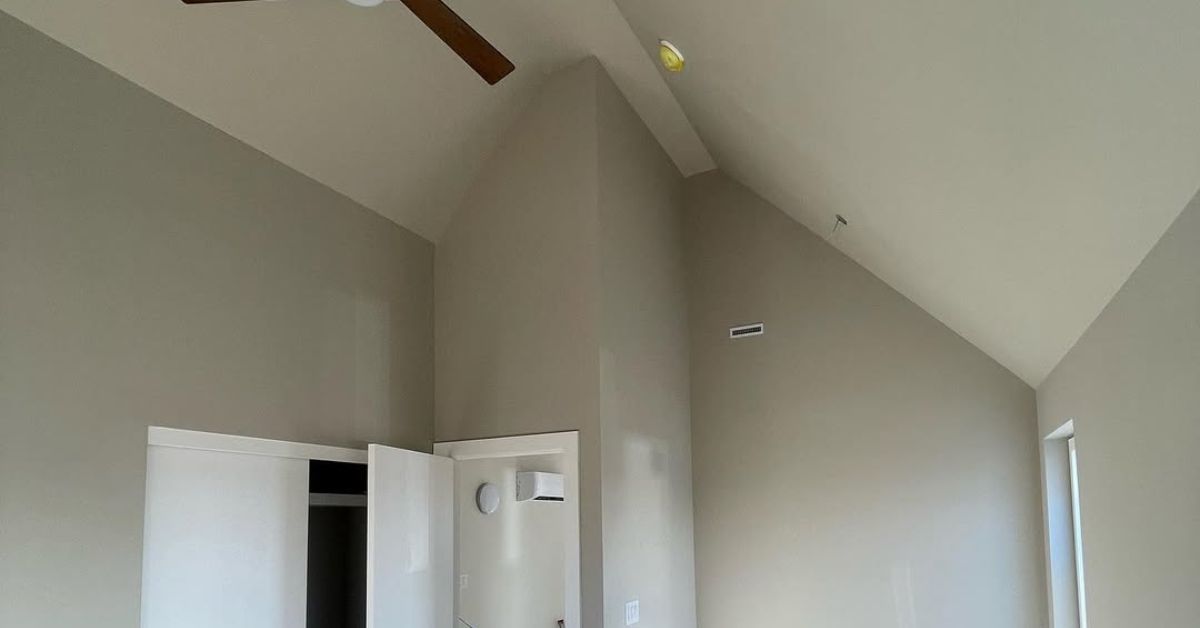
Protect the Property’s Value
Timely drywall repairs are important to preserve the home’s immediate appeal and long-term value. Even if you’re not planning to sell soon, maintaining your property’s condition protects your financial investment. Visible drywall damage creates negative first impressions for potential buyers and can signal underlying maintenance issues.
Professional home inspections will identify drywall problems, and buyers commonly use these issues to negotiate lower prices or request extensive repairs before closing. Addressing problems promptly prevents them from becoming major issues that affect future sale negotiations.
Property value also relates to your quality of life and pride in your home. Well-maintained walls create a more comfortable, attractive living environment. Therefore, repairing drywall issues promptly is a wise decision.
Successfully File Insurance Claims
Most insurance policies require homeowners to take immediate action to mitigate damage as soon as it’s discovered. Delaying repairs could be seen as negligence, potentially limiting your coverage for any related problems that develop over time.
If a small water leak causes drywall damage and you wait several months to address it, your insurer may argue that the delay caused mold growth or structural damage. They might refuse to cover any secondary issues.
By addressing drywall damage promptly, you demonstrate to your insurance provider that you are a responsible homeowner committed to maintaining your property. Acting quickly not only fulfills your policy obligations but also strengthens your claim by clearly linking the damage to a specific event, like a storm or a burst pipe.
What Are the Next Steps To Take?
When you notice drywall damage, assess the scope and potential causes. Small holes or minor cracks might seem manageable, but it’s worth having a professional evaluate the situation to identify any underlying issues.
Document the damage with photos and notes about when you first noticed the problems. This information helps professionals understand the progression and potential causes, leading to more effective repair strategies.
Get multiple quotes from qualified drywall contractors to understand the scope of work needed and associated costs. Professional contractors can identify related issues you might have missed and recommend comprehensive solutions.
Consider the timing of repairs in relation to other home projects. If you’re planning painting, flooring, or other renovations, coordinating drywall repairs can save time and money while minimizing disruption to your daily routine.
Take Action To Protect Your Home
Drywall damage rarely improves on its own, and the costs of delayed repairs typically exceed the expense of prompt action. From preventing water damage and structural problems to maintaining energy efficiency and property value, addressing drywall issues quickly safeguards your home.
If you’re dealing with drywall damage in Colorado, Rival Drywall offers professional drywall repair services for homes and commercial properties. Our team of specialists can handle projects of any size, from minor patches to extensive repairs, with attention to detail and customer satisfaction.
Drywall damage happens to every homeowner at some point. Whether it’s a small hole from moving furniture, water stains from a roof leak, or cracks that develop over time, many drywall issues seem minor at first glance. However, putting off repairs can lead to serious problems.
The importance of timely drywall repairs extends far beyond aesthetics. While a damaged wall might look unsightly, the real consequences of delayed repairs affect your home’s structural integrity, energy efficiency, and overall value. This guide explores why drywall problems occur, the serious consequences of ignoring them, and the steps you can take to protect your property.
Why Do Drywall Issues Occur?
Drywall damage stems from various sources, and identifying the root cause helps prevent future problems. Most issues fall into three main categories.
Water Exposure
Leaking pipes, roof damage, flooding, or high humidity levels can compromise drywall integrity. When moisture penetrates drywall, it weakens the gypsum core and can lead to swelling, cracking, or complete failure of the material.
Physical Impacts
Physical impact creates another common source of damage. Door handles, furniture, moving boxes, or accidental impacts can create holes, dents, or cracks. General household traffic and pets can contribute to wear and tear over time.
Settling Foundation
Natural settling affects all homes as they age. Temperature fluctuations, foundation shifts, and normal building movement can cause stress fractures and separation at joints. These issues develop gradually and may go unnoticed until they become more severe.


